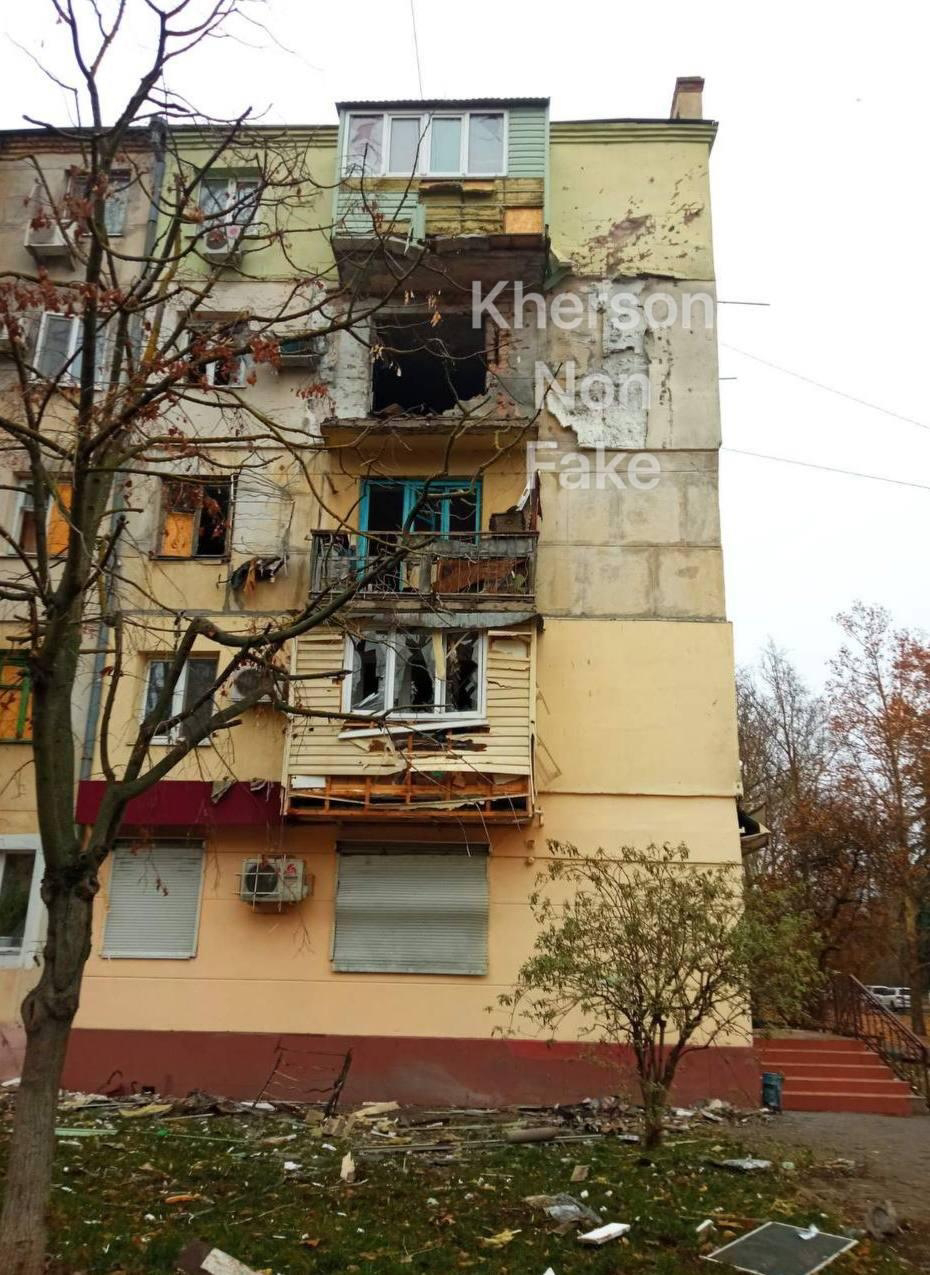Kherson - a city surviving
We are back in Odesa after, probably, the most challenging two days of our year in Ukraine. After delivering yesterday's aid, we needed to stay overnight in Kherson as we had several things planned today. It was not a restful night. The shelling seems to come in waves - it finished between 7 and 8pm - and then there is an unnatural, complete quiet for a city, because it's curfew, and also because there are only about 50,000 residents left out of 350,000, previously, in Kherson. Then there was shelling again between 1 and 2am, which somehow seems louder and scarier at night.
Now I've experienced this constant, random shelling, first-hand, I can begin to understand what the cumulative psychological damage must be for people here.
First thing this morning, the co-founder of Lighthouse of Revival took us to see some of the extensive damage to Kherson. Below, this was a teacher training centre. Educational sites are consistently targeted by the Russians throughout Ukraine. We were informed that there is only one school that has not been damaged in Kherson, out of 60.
This may be a familiar picture from recent news, below. The Lighthouse charity volunteers are covering the windows, as they are doing in many parts of the city.
Just next to this bombed building was a children's park.
We were taken to the charity's main warehouse where boards for covering windows and a few other building materials are stored. Sadly, though, donations for more permanent rebuilding, e.g. roofing felt, are few - it's not considered to be worth it because the building may be bombed again.
Finally, we were taken to a point where we could see some of the flooding in the lower part of Kherson, where 5-600 buildings have been flooded.
Amongst a group of locals staring at the devastation, a woman was crying inconsolably - her little dog was stranded on the roof of her house and she couldn't get to it. Yesterday there were many little boats/dinghies trying to make rescues, but some of these got into trouble in strong currents and had to be rescued themselves. So the authorities put a stop to this today, only allowing larger, professional rescue boats.
This afternoon, through our contact, Anastasia, we managed to visit the three UNICEF centres in Kherson - amazingly, operating every day of the week, offering children some semblance of normality in a relatively safe place. We are planning to be engaged in this.
At one centre we handed out some of the much-loved trauma teddies, made by the Penparcau community in Wales.
At another UNICEF centre, the older children said that they would like some board games and books - books we had, kindly donated by our friend in Lviv. It was wonderful to see how excited the children were to choose their book - or choose it and then swap it for another! These centres are used by children up to age 16 and we were told that the older teenagers tend to be forgotten when people donate. Books about movies, celebrities,etc, were suggested. We'll try to get some more ideas.
This was the most positive part of the day - that makes the risks we take in coming to somewhere like Kherson worthwhile. Feedback, such as came from one of the mothers, who said "Thank you. Your coming here means so much to us."
It's impossible to come to Kherson and not be at risk. When we were about to leave the city, we realised that we'd left our phone chargers in the place we stayed overnight, and so we went back for them. At the precise moment we got to the apartment complex, a shell exploded not 500 metres away, in the city centre - we dived for cover when we heard the whistle of the approaching shell. As we drove away, after sheltering awhile, there were live power lines dangling overhead. In retrospect, we thought it wasn't worth risking our lives for a phone charger, which is a learning point. But it doesn't prevent the randomness of the attacks.
And, as we've said before, not many people are doing what we're doing. Zelenskiy, today, lamented the lack of support following the Kakhovka dam floods, from both the UN and the Red Cross. Most of the relief effort is conducted by Ukrainian volunteers and a handful of international volunteers, including many Polish. If we are frightened away by the random terrorism, then Putin, and other dictators, have won.












💔
ReplyDelete